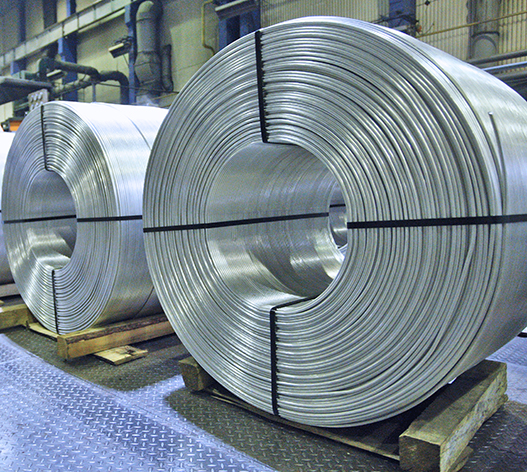The European Commission plans to levy tariffs of between 25% and 50% on imports of Chinese steel and related products within weeks, according to a report in German business daily Handelsblatt.
The move would come as the EU searches for a longer-term framework to manage steel imports once current safeguard measures expire in mid-2026, a deadline the Commission has acknowledged cannot be extended under global trade rules.
Commission President Ursula von der Leyen told the European Parliament on 10 September that the executive would propose a new mechanism to curb imports in light of global overcapacity and pressure on margins that is hindering decarbonisation investment by European producers.
News of possible duties lifted European steel shares on Friday, with listed producers in Germany, Luxembourg and the Netherlands among gainers during morning trade. Markets attributed the bounce to the prospect of higher border protection against low-priced imports.
Any EU action would land against the backdrop of a surge in Chinese outbound shipments. Analysts expect China’s steel exports to reach a record of roughly 115–120 million tonnes this year, up 4–9% on 2024, as mills seek overseas buyers amid weak domestic demand following the prolonged property downturn. Beijing’s producers have also increased sales of semi-finished products such as billet, which can attract fewer trade measures than finished goods.
Despite the record pace, the EU has accounted for a small fraction of China’s exported volume. In 2024, shipments to the bloc were about 368,000 tonnes, or roughly 4% of China’s steel exports, industry data show—implying that tariffs in the ranges reported by Handelsblatt would have a limited direct effect on China’s overall export programme, although they could redirect flows to other markets.
Brussels has signalled a wider tightening of metals trade management this year. On 23 July the Commission activated customs surveillance of imports and exports of metal scrap—including steel, aluminium and copper—after warnings from smelters about shortages and the risk of shutdowns. The initiative is intended to give the executive more granular data for potential measures to secure supply of recycled inputs critical to the sector’s emissions-reduction plans.
Trade frictions around steel are not limited to Europe. Washington has separately raised tariffs on a broad range of steel and aluminium products, and EU officials have been in contact with the United States over possible arrangements on metals trade. Any U.S. escalation has the potential to redirect global flows, affecting European pricing and availability.
In her September address, von der Leyen said the forthcoming EU instrument would replace the current safeguards and provide a longer-term framework compatible with WTO rules. Details have not been released, but the objective is to “maintain fair competition” while allowing European companies to invest in low-carbon technologies, such as electric arc furnaces and hydrogen-based processes, without being undercut by imports from regions with excess capacity.
European producers argue that persistent global overcapacity distorts prices and undermines investment. EUROFER, the industry association, estimates excess worldwide capacity at more than 600 million tonnes in 2024, with further increases projected. Policymakers in Brussels have framed recent steps—including scrap-trade monitoring and prospective new import rules—as part of a wider industrial policy to retain strategic manufacturing while meeting climate targets.
For downstream users, additional tariffs could have mixed effects. Higher duties would likely raise the cost of some imported products in the short term, but industry groups say improved visibility and a more predictable regime may help stabilise supply. The Commission’s surveillance of scrap flows is also aimed at ensuring recyclers and smelters have access to feedstock as the sector shifts toward circular production models. The executive has said it will use data from the surveillance system to decide whether further steps are warranted.


